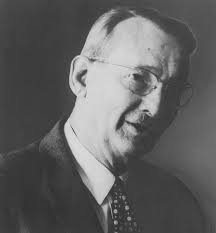Stouffer, Samuel A.

Bio: (1900-1960) American sociologist. Samuel Stouffer received his doctorate from the University of Chicago and his postdoctoral fellowship from the University of London. He taught at the universities of Wisconsin and Chicago, and during World War II he worked as the director of the Information and Education Division of the Ministry of War. After the war, he moved to Harvard University, where he founded the Laboratory of Social Relations, and remained at Harvard until his death. Stouffer was one of the pioneers of quantitative methods, large empirical research conducted by teams of people, and statistical analysis of a large number of variables in the collected data, with the aim of testing hypotheses. He advocated for the development of sociological theories that can be verified by research (as opposed to those that can’t be tested in that way), as well as for building a connection between empirical and applied research. He was opposed to large speculative schemes that cannot be verified and which have no practical application. Although he did not conduct experiments, he considered this method of empirical research to be the best for testing hypotheses, because it enabled the manipulation of a large number of variables.
During the 1930s, he conducted, together with Lazarsfeld, a large statistical study on the economic impact of the Great Depression on the family, which is presented in the book Research Memorandum on the Family in the Depression (1937). Stouffer concluded that migrations between populated places, caused by the search for work, had certain regularities. He considered these regularities in the context of "intervening opportunities". The number of people moving from one place to another will be higher if there are more job opportunities in the place of relocation, and fewer opportunities in places closer to the one from which people move, where the direction of migration is not important, only the physical distance.
The second major team research, led by Stouffer, was conducted during World War II, and the topic of the research was the US military. The results of this research are presented in the book Studies in Social Psychology in World War II: The American Soldier, Vols. 4 (1949). One of the theories that emerged from this research was that of "relative deprivation." Members of different branches of the army had different assessments of their own progress in the army, and that depended on the average speed of advancement in that branch of the army. The more opportunities a branch provided for progress, the more dissatisfied those who did not progress would be. Since the feeling of dissatisfaction depended on the situation in the reference group, that is, some branch of the army, the dissatisfaction depended on that relative deprivation within that branch of the army. When Senator Joseph McCarthy began a "witch hunt" against Communist Party members and sympathizers in the United States in the early 1950s, Stouffer conducted a major survey of Americans' attitudes toward communism and civil liberties in response to this encroachment on civil liberties. The results of the research are presented in the book Communism, Conformity and Civil Liberties (1955).
Fields of research
Citizenship Democracy Family Freedom Immigration Psychology Socialism Tolerance War WorkMain works
Research Memorandum on the Family in the Depression (1937);
Studies in Social Psychology in World War II: The American Soldier, Vols. 4 (1949);
Communism, Conformity, and Civil Liberties (1955);
Social Research to Test Ideas: Selected Writings (1962).

